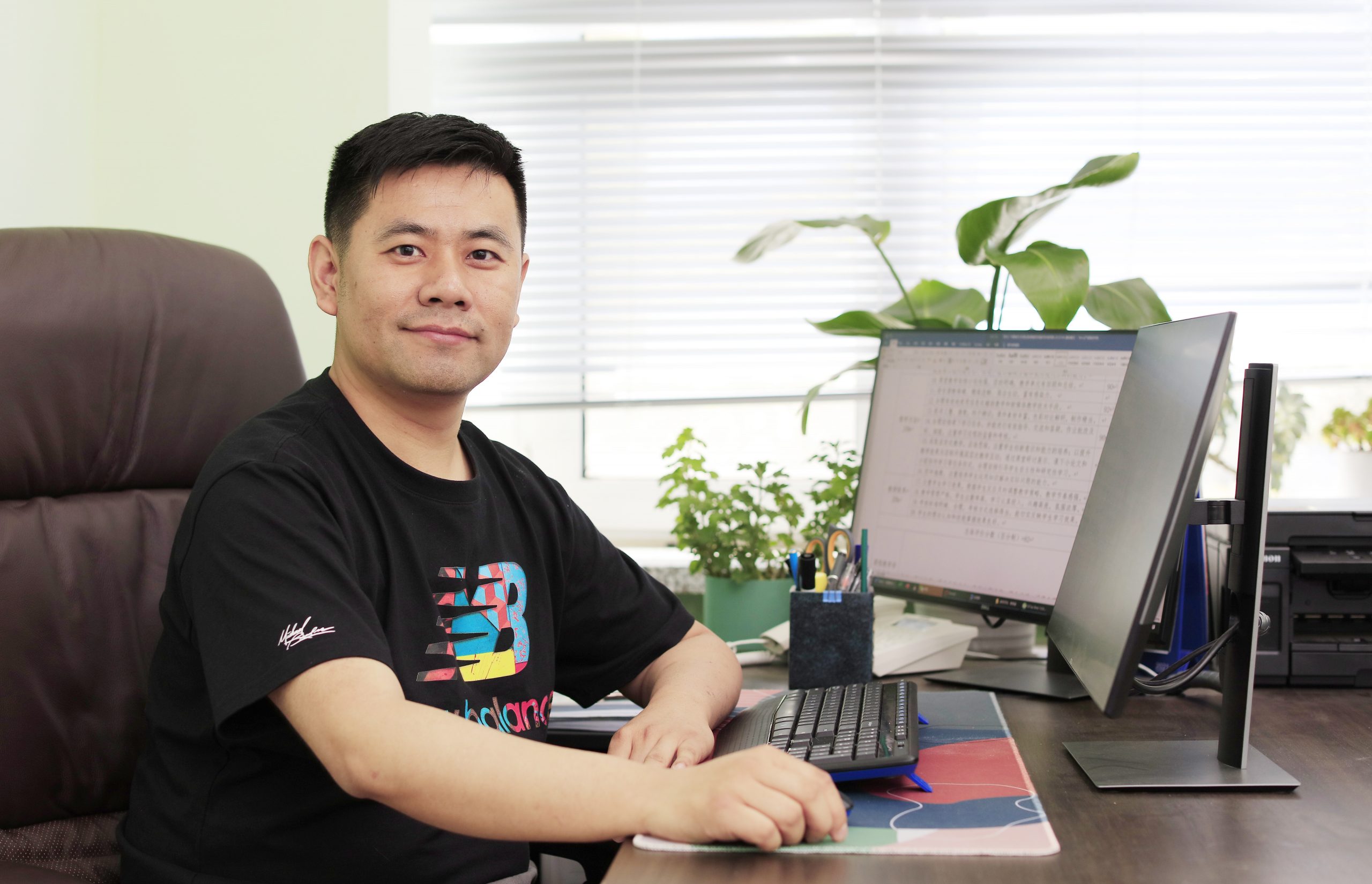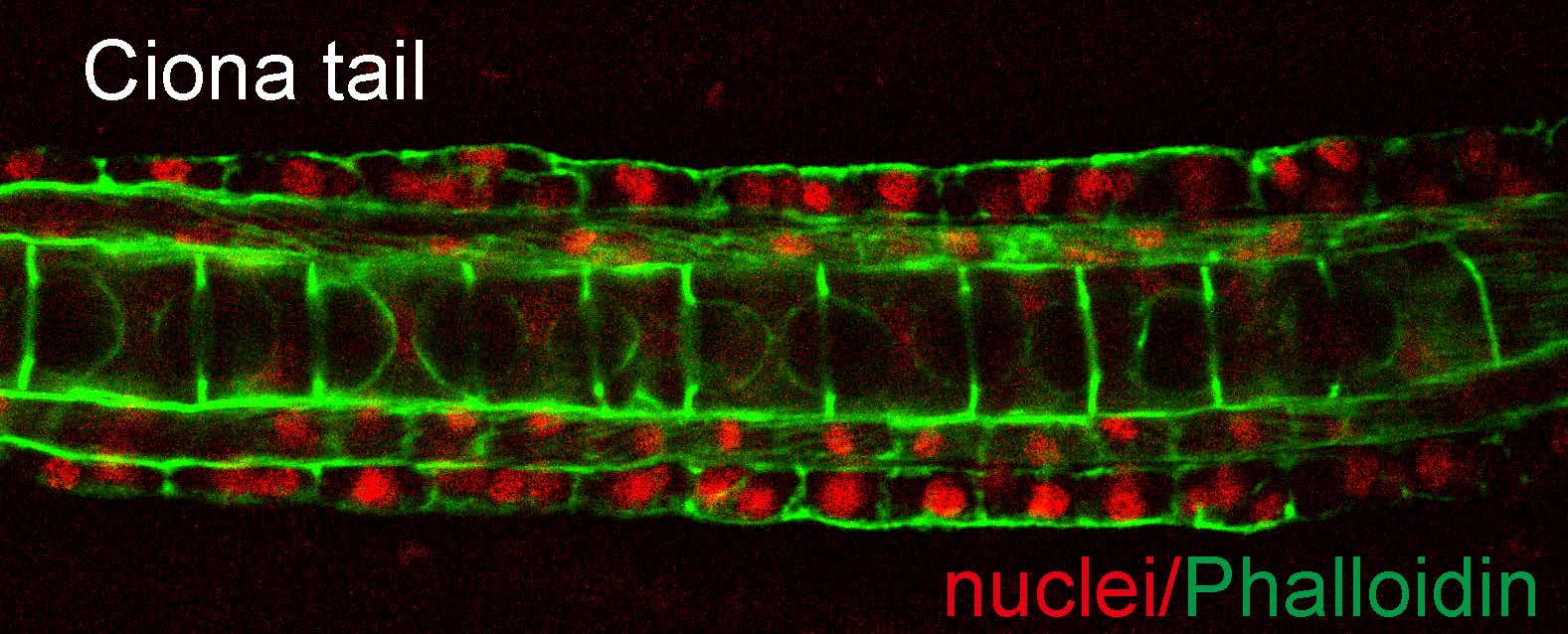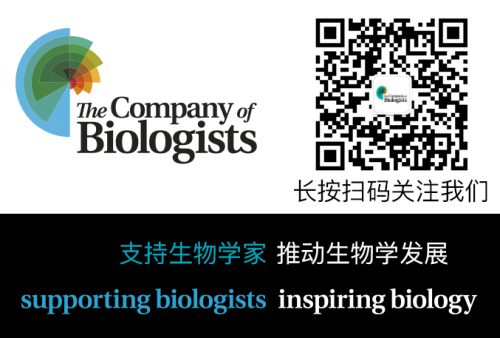An interview with Zhiyi Lv
Posted by the Node, on 22 July 2021
Over on The Company of Biologists WeChat channel, we’re enjoying getting to know the growing community. We recently published an interview with Dr Zhiyi Lv, a member of Professor Bo Dong’s group at Ocean University China in Qingdao, China. The Dong lab was established in 2014 and is interested in uncovering the cellular, mechanical and biochemical signalling networks that interact to drive the diverse morphogenetic processes during organ formation and tissue regression using marine ascidians and flies as models. You can find out more about Bo’s research in a ‘The people behind the papers’ interview published in Development last year and a recent Development presents… talk by Hongzhe Peng, a doctoral student in the lab.
Having gained his undergraduate and Master degrees at Northwestern A&F University in China, Dr Lv moved to Germany to obtain his PhD at the University of Göttingen. He remained there for his first postdoc position before relocating back to China to join Professor Bo Dong’s lab at Ocean University of China. Here, he tells us more about his scientific journey, including why he finds the dev bio field amazing and how labs differ between Europe and China.

When did you first become interested in science?
I don’t think there was a specific timepoint that where I thought, ‘aha, now I am interested in science!’ All kids are curious about the unknown world and they are always trying to explore the surroundings. In this way, scientists and children have a lot in common. Fortunately, I did not lose this curiosity as I grew up.
What attracted you to the field of developmental biology?
How a simple-structured (relatively) fertilised egg becomes a complex adult with head and legs attracted so many people since Aristotle’s time. Then, people realised that genes controlled the development. Now, increasing evidence suggests that mechanical forces contribute morphogenesis actively. It is amazing, isn’t it?
You gained your PhD at the University of Göttingen in Germany and stayed in the same lab for your postdoc but switched from biochemistry to biophysics of morphogenesis – can you tell us more?
I got my PhD under the supervision of Professor Grosshans. I worked on the regulatory mechanism of actin polymerisation. At that time, we identified that a F-BAR protein, Cip4, inhibits actin polymerisation by inactivating Diaphanous, which is an actin nucleator. We got very exciting data, which was published in Journal of Cell Science. Biophysics of embryogenesis has been an important topic in the Grosshans lab. I was impressed by my biophysical colleagues’ talks during our seminars. Professor Grosshans was very nice and always encouraged us to explore a new area. Two projects were running in the lab. One was mechano-transduction at cell-cell contact, and the other one was nuclear array self-organisation in a Drosophila syncytial embryo. I chose the second one for my postdoctoral project.
What are the differences in the lab between Europe and China?
The biggest difference is that experienced postdoc researchers are the main power in the biological labs in Europe. However, most bench work is done by the master and doctoral students. In this case, we need more time and effort to train the students.
Also, some labs in Europe are quite small – one PI tends to lead several postdocs and PhD students, although there are also big labs in Germany. In China, most labs, especially productive labs, are large!
How did you come to work in Professor Dong’s lab?
I met Professor Dong when we were in an EMBO symposium in Heidelberg, Germany in 2018. I was attracted by his work and also by his personality. We share similar scientific interests, and he asked whether I was willing to join to his group. Why not? It was a spontaneous decision.
You have been back in China for a couple of years now – what was it like coming home?
I have experienced ‘reverse culture shock’! For example, when we go to dinner with friends or colleagues, we do not split the bill in China. The leader or the senior person pays for all. As time passes, I will get used to Chinese culture again.
What question is your research currently trying to answer? The origin and the regulation of forces driving morphogenesis, and the crosstalk between genetic cascade and mechanical forces.

What are the main advantages and drawbacks of the model systems you work with, Drosophila and Ciona?
Some students in the lab often misunderstand that Drosophila is a user-friendly model compared to Ciona. The reason behind this might be that Drosophila is easier for genetic manipulation. But in my opinion, this is totally wrong – CRIPSR/Cas9 can also generate the mutant we want in Ciona. I think the advantage of Drosophila is that you can keep the stocks in the lab and you can do experiments whenever you want. The drawback of this model is that you have to take care the animals frequently. We need to collect Ciona from sea. So, the material is limited during early spring and late winter. We need to set up the inbred line in the lab. This is what we are currently doing. Ciona embryos and its larvae are smaller than Drosophila, which is a big advantage for imaging.
What is next for you?
I plan to focus more on Ciona embryogenesis research, and hope to involve myself in the Ciona community more actively.

Follow us on WeChat for exclusive interviews and research highlights written by the community, as well as useful resources to help navigate the publishing process.
Find out more about the Company’s efforts to engage with Chinese researchers


 (No Ratings Yet)
(No Ratings Yet)